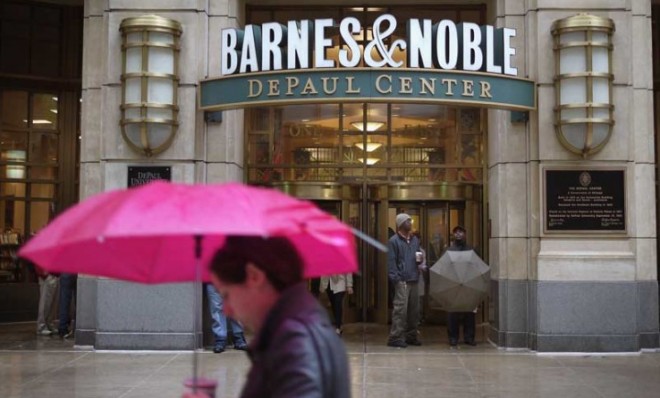Barnes & Noble and the end of the mega-bookstore
The chain may close a third of its stores over the next 10 years


A free daily email with the biggest news stories of the day – and the best features from TheWeek.com
You are now subscribed
Your newsletter sign-up was successful
Mitchell Klipper, the chief executive of Barnes & Noble's retail unit, told The Wall Street Journal this week that the company would close as many as a third of its brick-and-mortar stores over the next 10 years, the clearest evidence to date that the chain has struggled to remain relevant amidst the rise of online behemoth Amazon. Further deepening the gloom for the book industry, Barnes & Noble recently reported unexpectedly weak sales from the holiday season, with revenue dipping 11 percent from a year earlier.
Amazon has eaten into Barnes & Noble's profits in two ways: By selling physical books at a steep discount the bookstore can't match, and by cashing in on the skyrocketing popularity of e-books. Indeed, one of the only reasons B&N is still around, unlike its now-defunct competitor Borders, is that B&N had enough foresight to roll out the Nook e-reader to compete with Amazon's Kindle.
But even the Nook has come under immense pressure in the past year. Indeed, B&N, which isn't exactly known as a cutting-edge technology company, has had to fend off competition from tech stalwarts like Apple, Google, and Samsung.
The Week
Escape your echo chamber. Get the facts behind the news, plus analysis from multiple perspectives.

Sign up for The Week's Free Newsletters
From our morning news briefing to a weekly Good News Newsletter, get the best of The Week delivered directly to your inbox.
From our morning news briefing to a weekly Good News Newsletter, get the best of The Week delivered directly to your inbox.
That has led some analysts to predict certain doom for the country's last nationwide book chain, or at least its physical outlets. Doug Stephens, a retail consultant, told the Journal that mainstream booksellers will "become a thing of the past." The disappearance of big-volume booksellers would have a ripple effect throughout the book publishing industry, particularly publishers, which used to rely on large orders from the likes of B&N to fill their coffers.
Klipper, for his part, rejects such a negative outlook, asserting that most B&N stores remain profitable. In addition, Klipper argues that B&N offers a certain experience that other retail outlets can't provide. "You go to Barnes & Noble to forget about your everyday issues, to stay a while and relax," he said. "When you go to Bed Bath & Beyond, you don't sit down on the floor and curl up with your blender and your kid."
However, there's no doubt that the trend lines are grim for B&N. And it's hard to feel too sorry for a chain that destroyed many an independent bookseller by deploying the same price-slashing tactics Amazon has. "In short, B&N's scorched earth policy of the 1990s has ultimately left us with, well, scorched earth," says Dennis Johnson, a co-founder of the independent press Melville House.
But there's hope yet for booksellers, as well as the stubborn portion of the reading public that would rather roam the musty stacks of their local bookstore than deal with the supermarket-style extravagance of a typical B&N. The New York Times reported during the holiday season that independent bookstores "say they are thriving," in marked contrast to their much-bigger rival.
A free daily email with the biggest news stories of the day – and the best features from TheWeek.com
Ryu Spaeth is deputy editor at TheWeek.com. Follow him on Twitter.
-
 Properties of the week: pretty thatched cottages
Properties of the week: pretty thatched cottagesThe Week Recommends Featuring homes in West Sussex, Dorset and Suffolk
-
 The week’s best photos
The week’s best photosIn Pictures An explosive meal, a carnival of joy, and more
-
 The ‘ravenous’ demand for Cornish minerals
The ‘ravenous’ demand for Cornish mineralsUnder the Radar Growing need for critical minerals to power tech has intensified ‘appetite’ for lithium, which could be a ‘huge boon’ for local economy